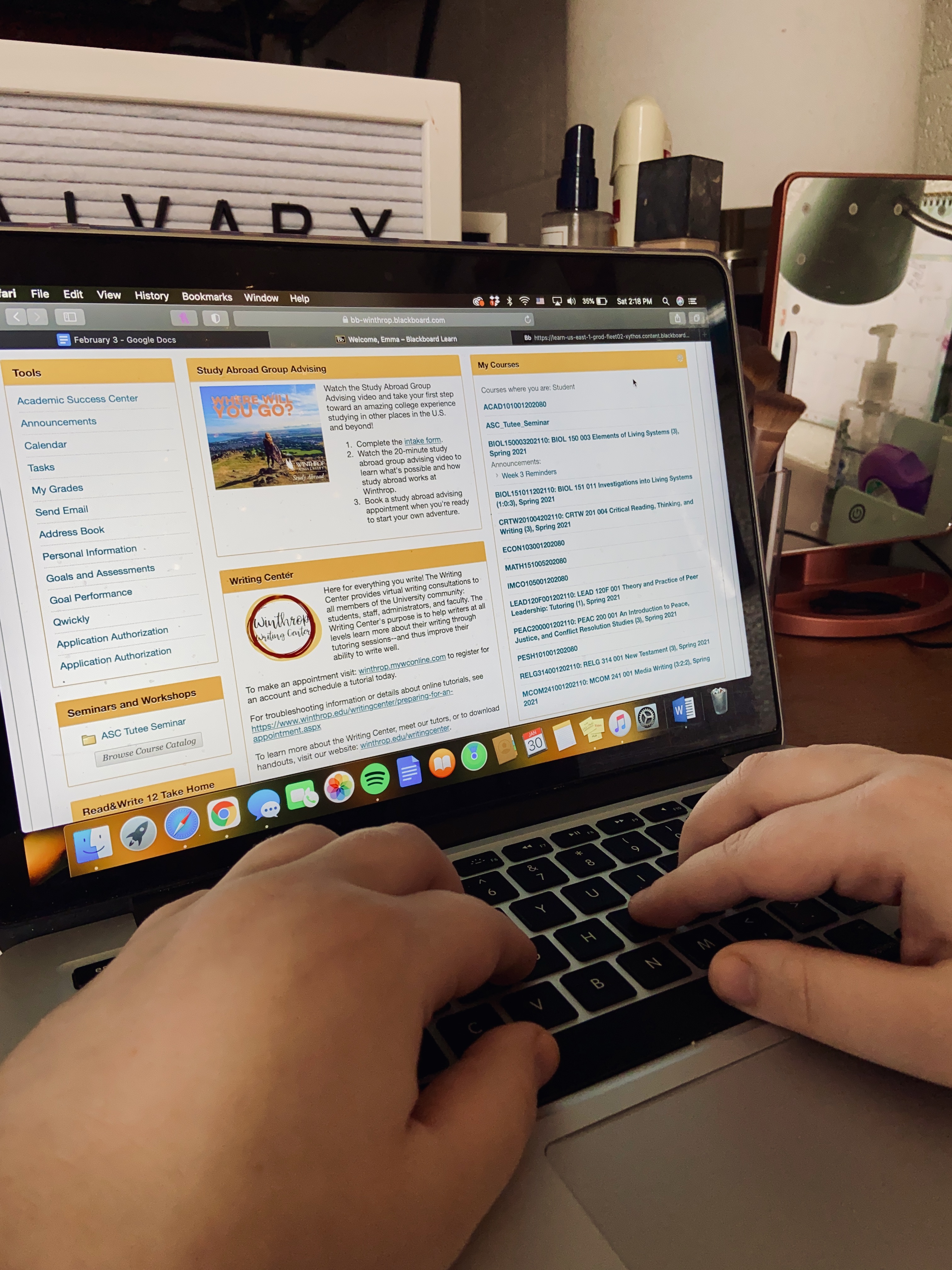College students from all over the nation have felt the impact that a pandemic has on higher education. Aside from feeling increased psychological strain, many feel they are literally being robbed of their college experience, by coronavirus and the exorbitant costs of receiving an education.
Students were already hindered by enormous costs before the pandemic, but additional obstacles like online schooling have been crushing.
Online schooling via video streaming is a relatively new answer to an old problem, how to create a learning environment during a crisis that prevents students from attending class in-person. During the outset of coronavirus, professors and university staff scrambled to create online curriculums for students in lieu of a traditional classroom setting. However, online schooling is vastly different from in-person schooling and is abounding with problems.
Many students are struggling to understand course expectations, run into technical difficulties and coping with a lack of personal contact with the professor. These are challenges that students are expected to overcome and adapt to quickly. Otherwise, their grades will suffer as a consequence. It is understandable that professors are adapting to these new circumstances as well, however it is their responsibility to ensure that students are not overwhelmed and can comprehend the course material.
Online schooling is an inferior method of education and improvements need to be made by professors and university administration to ensure that no student is left in the lurch during this unconventional time. It is also important that universities adjust their tuition costs. Charging full tuition for a lower quality of education is unreasonable and unfair.
According to the National Center for Education Statistics, “Between 2007–08 and 2017–18, prices for undergraduate tuition, fees, room, and board at public institutions rose 31 percent—after adjustment for inflation.” The most recent statistics report that the average student loan debt in the U.S. is between $28,000 – $30,000, some loans charging interest. Students should not be forced to place themselves in massive debt to receive an education, this discourages higher education is one of the many barriers to entry.
A recent national survey of college students by the study guide platform OneClass, revealed that “75 percent of college students were unhappy with the quality of online classes” and that 93 percent of those surveyed said colleges should lower their tuition rates for online schooling.
Winthrop sophomore Courtney Propes believes that is unfair for universities to charge full tuition for online schooling. “I feel that universities should adjust their cost of classes because online learning is not the same learning experience as in-person classes. There is a reason why there are online only universities. If I wanted all my classes online I would have applied to one of those,” said Propes.
Winthrop and other universities should adjust the cost of their tuition to accurately reflect the value of the education being received. Education is after all a major investment and students should receive the full value of their investment.
Textbooks are an obvious example of a superfluous and expensive cost students must pay for. Most college students are all too familiar with the absurd prices of textbooks. I personally have spent nearly $1,000 for rental textbooks this semester. Requiring students to dole out large sums of money for online or rental textbooks that are sparsely used, is ridiculous and a substantial blow to the wallets of students and parents trying to make ends meet.
Economists are unsure of the long term effects that COVID will have on the economy, some believe that we are headed towards a recession. However, the short term effects are understood, and have been higher unemployment and widespread business failure. The ability of students to pay back their loans in the future will be adversely affected by an uncertain job market.
Lost employment opportunities during the pandemic compounded with the rising costs of education have put students at a major disadvantage in their pursuit of a four year degree.
The number of working class families that can afford to send their children to college will continue to shrink under these economic pressures and rising costs. Federal subsidies for higher education, stimulus checks to families, loan forgiveness for students and lower costs of education are all necessary steps we must take to have a skilled and financially healthy generation of students. It should not be this difficult to receive an education in the world’s richest country.
Photo by Emma Crouch




